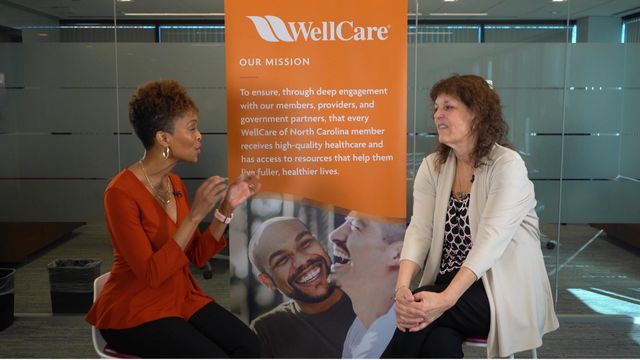Visit your doctor and establish lifelong healthy habits
From an early age, visiting your doctor and well-child visits can instill healthy habits that last a lifetime. With a focus on preventative care and screening, doctors' visits ensure that patients stay healthy and can reduce the likelihood of serious illnesses.
Posted — UpdatedFor many children, routine well-child visits beginning at an early age can help build both healthy habits and trust with their healthcare provider. These visits help children be well and stay well by providing preventive care and screenings and establishing a relationship between the child, parent, and provider. During these visits, physicians look for several things, including the child's nutrition, safety, and social needs. As the child ages, the topics of discussion may change to accommodate the patient's changing needs.
According to the American Academy of Pediatrics (AAP), well-child visits are important for several reasons. "The goal is for children to have at least six wellness child visits by the time they are 15 months, then at least another two well-child visits by 30 months, and an annual wellness child visit by the age of three," said Frances Johnson, Vice President of Quality at WellCare of NC.
During well-child visits, healthcare providers discuss subjects ranging from nutrition and safety to school and social needs. It’s important to go every year because healthcare professionals have the acute insight to understand potential dangers for children of different ages.
For example, for a newborn, the physician will focus on concerns like immunizations and maternal bonding. "Well-child visits really help to establish a good support system for family health. Physicians do screenings for several things and can discuss child nutrition and safety issues, such as tobacco exposure and car seat safety. Then, if need be, they can visit outside resources if that is deemed appropriate," said Johnson.
At an early age, a physician may discuss safety in bathing, safety in play, age-appropriate toys, and oral health and hygiene. As the child continues to get older, discussions around screen time, playtime, exercise, and sleep occur. Once the child gets to be around 13, they look at social and mental health needs.
Well-child visits also provide an opportunity for preventative screenings. Screenings help identify health problems early so they can be treated before they become more serious. For example, screening for lead exposure can be done at a well-child visit, which could be a concern if the child lives in an older home.
Likewise, regular screenings that test for cognitive development and language help identify issues before they become problems. The screenings are often built into the visit naturally, so the child doesn’t know they are occurring. As the child gets older, the pediatrician will screen vision and hearing and look for signs of cardiac issues or diabetes.
Finally, well-child visits help establish a relationship between the child, parent, and provider. This relationship is important because it gives the family a chance to get to know the physician and ask questions about their child's health. It also allows the physician to get to know the family and their medical history. This relationship is important because it gives the physician a holistic view of the child’s health history.
If parents only take children when they are sick, the acute need will take precedence, and any general wellness issues will not be addressed. In addition, the child will associate going to the doctor with not feeling well or with pain. Conversely, going to the doctor regularly can build strong generational habits.
"If a child is used to going to the doctor every year, chances are they will go [as an adult] every year and send their children every year. If a child grows up going to the dentist every six months, they will continue to go every six months and have their child do the same," said Johnson.
"When you look at what we do with, and for our members, there is a lot of education. If a family does not have a visit for their child, we will send them a mailer to reach members where they are. There are lots of community events that happen across the state for education at health fairs and other events. We try to hit every angle we can. We don't want anyone to be unaware of what is available," said Johnson.
Even though early childhood visits to the doctor are essential, the importance of preventative care does not diminish with age. As an individual reaches adulthood, the habits formed early in life can play a significant role in their long-term health. Visiting your doctor from an early age builds a foundation for healthy habits that will continue to develop through adolescence and adulthood.
Copyright 2024 by Capitol Broadcasting Company. All rights reserved. This material may not be published, broadcast, rewritten or redistributed.






